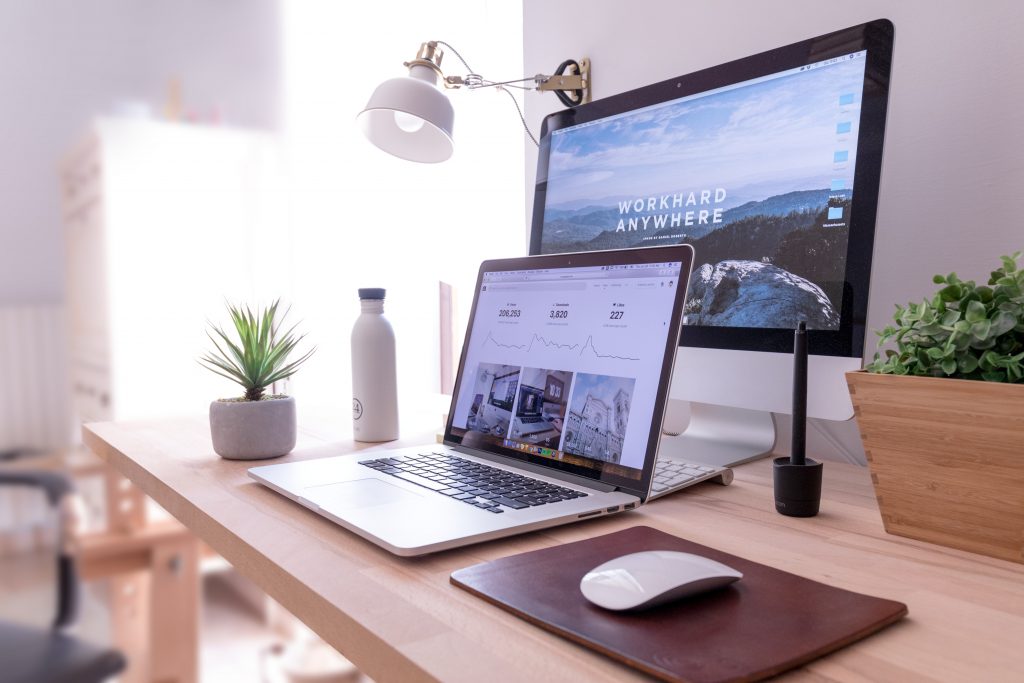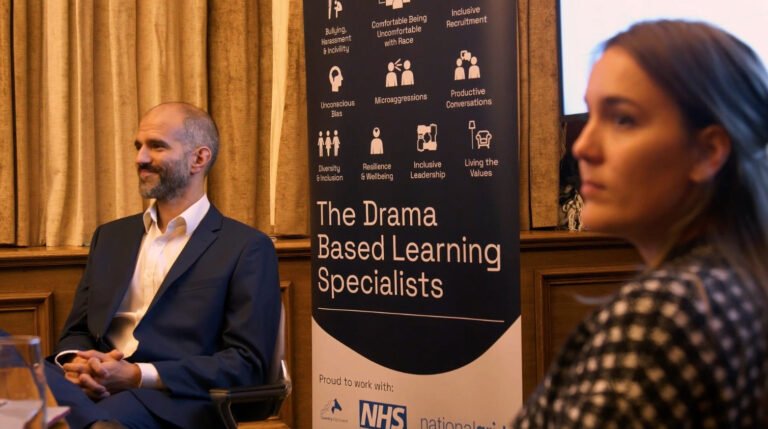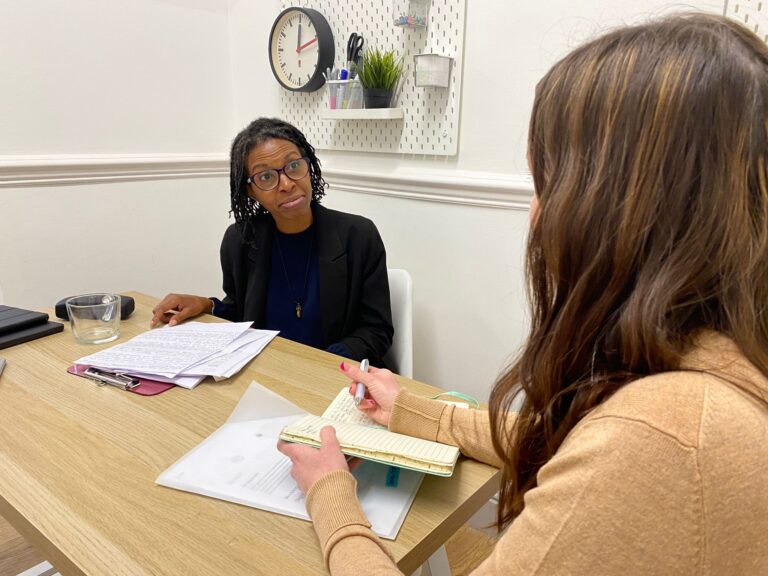Inclusive leadership, inclusive workplaces
Let’s be honest, the covid-19 pandemic has been nothing short of brutal hasn’t it; a virus not just pervasive to health, but to our whole way of living. Our work, home and social life have all been turned upside down by this seismic, global event.
Life can now be defined as:
- ‘The old normal’ – life before covid-19; the way we lived and worked, the 9-5, office-based, mask-free(!), close contact interactions.
- ‘The new normal‘ – life during the global pandemic; waves of infection, lockdowns, remote and flexible working, mutations and more restrictions.
Recently it feels like we’re entering a new period of change though. It’s what I and others are calling:
- ‘The next normal’ – life from summer 2021 onwards; the future! Things are feeling more hopeful with:
✅ The vaccination effort making huge strides.
✅ Variant boosters being developed.
✅ Workplaces and society opening up again.
I no longer feel like people or businesses are in survival mode. Yes, we still have challenges ahead of us(!), but I feel like we can finally take a moment, breathe and start planning for the future again. I love planning. Maybe it’s my love of stationary(!), but mainly it’s the relief I feel from turning chaos into calm.
Planning is so important in business. It’s the foundation for creating positive change and making great work – and we need this now more than ever. Going forwards leaders must plan and create workplaces which work for everyone. We all have differing needs and when organisations flex, (something the pandemic has shown us is possible) it means people can thrive, which benefits both the individual, teams and companies.
If we want to boost the economy, if we want increased productivity and profits, improved employee wellbeing etc, then workplace diversity and inclusion must be at the centre of our vision, goals and the steps we take to achieve these. (See the D&I business case for more detail.)
Inclusivity, which starts at the top a.k.a. inclusive leadership is our roadmap to the future.
Let’s not forget, employees are an organisation’s greatest resource! When staff feel valued, listened to and supported, they’re more effective at work. Leaders must value their employees, ask them what they need and want from their workplaces going forwards and then get to work delivering on this. It’s such an exciting time! Yes, we’ve experienced a phenomenal amount of change, which has been absolutely gruelling at times, but we’ve also learnt so many lessons and there are some transformative positives we can take from the experience.
So where do we begin…
The first step in any great plan and journey is to know your start point! The Forever Flex: Making flexible working work beyond a crisis report gives us some interesting insights on where we are at the moment. In a survey of 1,420 employers, from all sectors, across the UK, during lockdown in 2020, Flex Appeal & partners found:
- 58% of employers were working from home more than before covid.
- 36% of employers had seen an increase in flexitime.
- 27% of employers reported more part time work than before covid.
- 13% of employers had increased job shares as a result of covid.
Powerful stats right? With this information we can see that:
Covid-19 has changed the status quo and culture of work in a global way. It has led to the potential for increased diversity, as higher numbers of women, people with disabilities (aka different abilities), carers, parents etc now have access to jobs they didn’t before, with more remote and flexible working.
As James Taylor at Scope summarises, “employers have embraced, out of necessity, the flexible working measures that disabled employees have been requesting for years.” – Financial Times.
Leaders must do all they can to ensure these flexible working practices continue in ‘the next normal’ and post-covid era. The door must remain open for under-represented groups to access work and career opportunities. They have vital skills, experiences and unique insights necessary for business growth, not to mention how important it is from an equality and social justice perspective…
We already have gender, disability and racial/ethnicity pay gaps. Whilst the pandemic has increased flexible working, unfortunately ‘racial/ethnic minorities, people with disabilities and women have been disproportionately affected by the health and economic impacts of COVID-19.’ – Gartner. Inclusion of these groups must therefore be prioritised when re-envisioning how workplaces operate going forwards.
Another key learning point is that the pandemic has disproven the false narrative that flexible working results in less staff productivity. This is a major finding; a silver lining to the torrential thunderstorm that has been covid-19.
Much research has been conducted on remote working and productivity in the last year. For example CIPD found: ‘71% of survey participants said that homeworking had no detrimental impact on productivity. This figure is made up of 33% who said that productivity improved, and 38% who said it was unchanged.’ – Flexible Working: Lessons From The Pandemic (Sample size: 2,133 senior decision-makers in UK organisations.)
There are so many positives to remote working and perhaps the most valuable one that employees have found is the gift of time. Some people have gained 2+ extra hours a day, by reclaiming time from their daily commute. Instead of sitting in gridlocked traffic or standing on busy, commuter trains, people have utilised this time and engaged in more sleep, exercise, hobbies and had quality time with their families. These things are incredibly beneficial for mental and physical health, and have positive effects with regards to work; people are more productive because they’re better rested, healthier and happier.
This is echoed in the CIPD report: ‘The most frequently mentioned benefit was increased wellbeing through avoiding the commute (46% of survey participants), followed by enhanced wellbeing because of greater flexibility of hours (39%).’
FlexAppeal have been campaigning for all employers to offer flexible working since 2015, including ‘compressed hours, homeworking, flexitime, smarter shift patterns or any other variation.’ This is because, ‘hundreds of studies have shown flex improves access to work, reduces stress and improves our physical and mental health. . . it’s good for employers, because it raises productivity, improves loyalty and can cut costs. It has been shown to work in factories, hospitals, shops and offices.’
Of course remote working has come with some drawbacks this last year, such as ‘screen fatigue’, less-than-ideal home office set-ups and reduced connections. However the trick is in learning how to off-set these downsides and what’s really exciting is ‘the next normal’ might just give us the perfect balance we’ve all been looking for…
What will ‘the next normal’ look like?
Conversations are taking place on this topic globally and I for one am very excited about the possibilities! The general consensus is that people want a hybrid of the old and the new: flexible hours, the option to work from home a couple days a week, as well as return to the office. How this will work logistically, globally etc is still to be determined and different companies will have varying approaches and methodologies to one another.
For example, Unilever has been discussing flexible working and the impact of this from very early on in the pandemic. “We saw no decrease in collaboration and productivity from March to June – in fact, this rose significantly with 20% more time spent working together internally and 19% more time in virtual external meetings. . . Our UniVoice survey in October showed a 9% increase (to 82%) in people who feel Unilever cares about their wellbeing.” – Unilever.
Fast forward to January 2021 and at a conference, Jope spoke of Unilever’s plans for the future: “Gradually we’ll shift to a hybrid mode of some time in the office, some time at home. And we anticipate never going back to 5 days a week in the office! That seems very old-fashioned now.” – Reuters.
Here at Enact Solutions, we’ve always prioritised offering full and part-time contracts, flexible hours and job shares. However during the pandemic we’ve learnt we don’t need to be physically visible at all times, but can in fact work remotely and to greater effect at certain times. It’s valuable learning we’re committed to taking forwards with us.
What’s inspiring is current research indicates extremely high numbers of employers feel the same. For example the Forever Flex report (November 2020) found:
- 72% of all employers want to keep working from home.
- 70% of all employers want to keep working flexitime.
- 66% of all employers want to keep job shares.
- 64% of all employers want to keep part time hours.
- 58% of all employers want to keep compressed hours.
The CIPD report also corroborates these findings: ‘After lockdown, 63% of employers planned to introduce or expand the use of hybrid working’.
Worthy of note though is that, ‘only 28% have plans to train managers in how to manage remotely.’ This is very concerning! Organisations must invest in training if they want to see the benefits flexible working can bring. This is CIPD’s number 1 recommendation:
‘In order to achieve productive homeworking, employers need to provide training and support in hybrid working.’ This is because, ‘of those employers who offered such training, 43% said productivity had increased during homeworking, compared to only 29% that hadn’t offered training.’
Training is key in generating greater productivity.
Here at Enact Solutions we run inclusive leadership training and pride ourselves on our business relevant content. We create experiential training programmes which focus on the types of challenges companies face today. We’re currently working with clients on how to effectively manage and support employees who are transitioning to hybrid working, helping these leaders bring the best out of their teams and individuals. It’s important work and we’re delighted to be coaching leaders in it.
Something we love teaching is the importance of involving employees at every level of consultation and creating a shared vision together. Employees from entry level, to middle manager, to senior leaders must be a part of the process working towards behaviour change for it to effectively work. Good communication and decision-making which is inclusive, is the key to redesigning workplaces which work for the differing needs we all have.
If businesses are to survive and thrive, we need inclusive leaders who understand how much of a priority this is and weave it into every area of the workplace, from recruitment, policies, processes, promotions and so forth.
Employers must listen to the needs and preferences of their staff and together they will be able to:
? Find flexible working solutions which work for both businesses and employees alike.
? Harness the power of collective diversity.
? Unlock the amazing potential and contributions we all have to offer.
It’s a historic and exciting time for inclusion. Join us.
Jemma Houghton
Jemma Houghton is one of our Associates at Enact Solutions. She’s passionate about people being included and feeling valued at work. It makes for happier, healthier employees and increased productivity.




